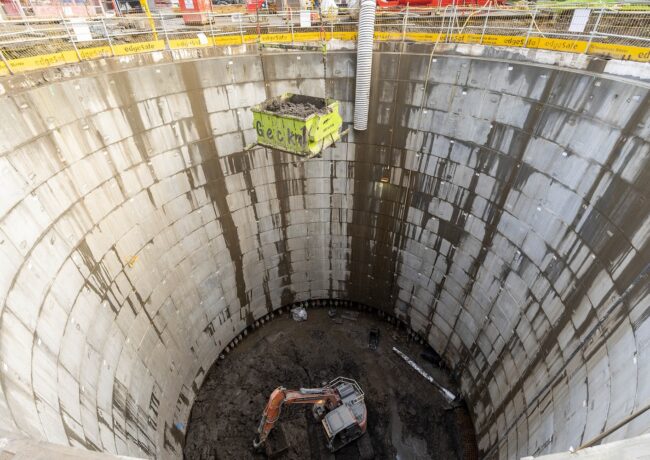Commentary
Change is needed to prevent levelling up being spurned
Levelling up is one of the most ambitious government aspirations in decades but the opportunity could be derailed if Whitehall doesn’t change the way it is delivering it, according to Stephen Beechey, public sector director at Wates Group.
More visibility over project pipelines, greater autonomy for local government and a better way of doling out funds are all required if levelling up is to be a success.
The importance of long-term pipelines
Taking a more long-term view on development pipelines would create more certainty for construction firms as they embark on recruitment drives to address the industry’s skills shortage.
“If we had longer term pipelines of work, we’d be able to make more strategic decisions around training and apprenticeships,” Beechey said.
“If you’ve got a piecemeal approach, it makes it much more difficult to make those decisions.”
Better pipeline visibility would also allow construction firms to push ahead with the greater use of modern construction techniques, Beechey added.
Wates opened an 83,000 sq ft modular factory in Coventry off the back of the company’s appointment to build new schools for the Department for Education and new prisons for the Ministry of Justice.
“If we got more visibility of those sorts of pipelines, we’d be able to invest in more of those types of manufacturing facilities, as would our peers, and you could invest in areas where levelling up is needed.”

Littleborough Primary School is one of three Wates is delivering in the North West. Credit: Wates Group
The future of levelling up
Modular construction has long been mooted as a key component of the net zero agenda. In Beechey’s eyes, the pursuit of a low carbon society and levelling up are “two sides of the same coin.”
However, there is a fear that levelling up has been pushed to the back burner of late given the political unrest that culminated in the resignation of Prime Minister Boris Johnson.
A leadership contest is now underway, but the focus of candidates has been on issues preoccupying Tory party members, such as addressing the cost-of-living crisis and high taxes; levelling up, one of Johnson’s flagship policies, has hardly been mentioned.
Despite political pandemonium, Beechey thinks levelling up is here to stay.
“Levelling up, in terms of what the white paper says, is one of the most ambitious pieces of government legislation that has possibly ever been introduced and I think it’s absolutely fundamental to the long-term success of our country.”
The idea of levelling up is to identify what towns and cities across the country need to boost economic growth and, in turn, make them better places to live for residents.
So far though, progress has been slow.
“I don’t think we’ve made much progress so far,” Beechey said. “We have got to get this critical programme off the ground and on a positive trajectory.”
Devolution and funding
One way to do this would be to improve the way funding for potentially transformative projects is distributed, according to Beechey.
Beechey gave Blackpool as an example of a place that is receiving lots of government cash but in “a completely uncoordinated way.”
The government has created many different funding pots and has left local authorities to fight it out for a share of each.
This approach is not working and as a result, some towns are being left behind, Beechey believes.
The answer, he said, is a more holistic approach, which means giving more power to the people best placed to wield it.
“Why on earth is there a situation where [councils] are having to bid for funds and then being told by central government as to whether that passes the test?
“It is absolutely fundamental that local government is given greater autonomy,” Beechey said.
Time to borrow?
If the government doesn’t change tack on funding, one way that local authorities may be able to help themselves is through higher levels of borrowing, according to Beechey.
“It is controversial but it is something that is relevant,” he said.
“We are quite conservative. Our levels of local government debt are significantly lower than the OECD and European Union averages. There’s potential here for allowing some greater levels of debt to be realised.”
But this too would likely require greater decentralisation.
Germany, a country widely thought to have cracked the devolution issues, spends three times more every year on economic development than the UK, Beechey explained.
“[In Germany] regional inequalities have been falling consistently over the last 30 years. During that same 30 years regional inequalities in the UK have been on a negative trajectory.”
As the UK prepares for a new Prime Minister, this could be the time to learn from European neighbours.








Levelling Up appears to be about the government getting quick wins, either shovelling money and jobs to their favoured partner authorities, or the redwall constituencies that voted them in at the last election.
This is no way to level up the country as others get left behind, I know it`s not a perfect model but look at the way things operate in European countries where cities and regions have power and influence to get tram networks and other big infrastructure projects without the lottery that exists in Britain.
By Anonymous
Levelling up is a meaningless phrase, which can be used by anyone to mean anything. Thus it will always be achieved or never achieved depending on who you are. This is its intention of course. Calling an entire department after the name was a stunning piece of chutzpah worthy of a government based on talking a good game, delivering failure and moving on to talk and fail more.
By Pointless name
The problem with levelling up,is the poverty of ambition within these towns that they are trying to level up. That has been caused by years of government neglect, and highly skilled, well-paid jobs will only appear in places, where there are people able to do them. Throwing millions of pounds at towns with poorly educated people will achieve nothing of any real worth . Levelling up should be based on education and skills, not prettifying high streets. Our old industrial towns are not going to attract that demographic. Manchester will attract the young and ambitious, Bolton won’t, so Bolton’s success needs to come from within and it starts with decent schools.
By Elephant